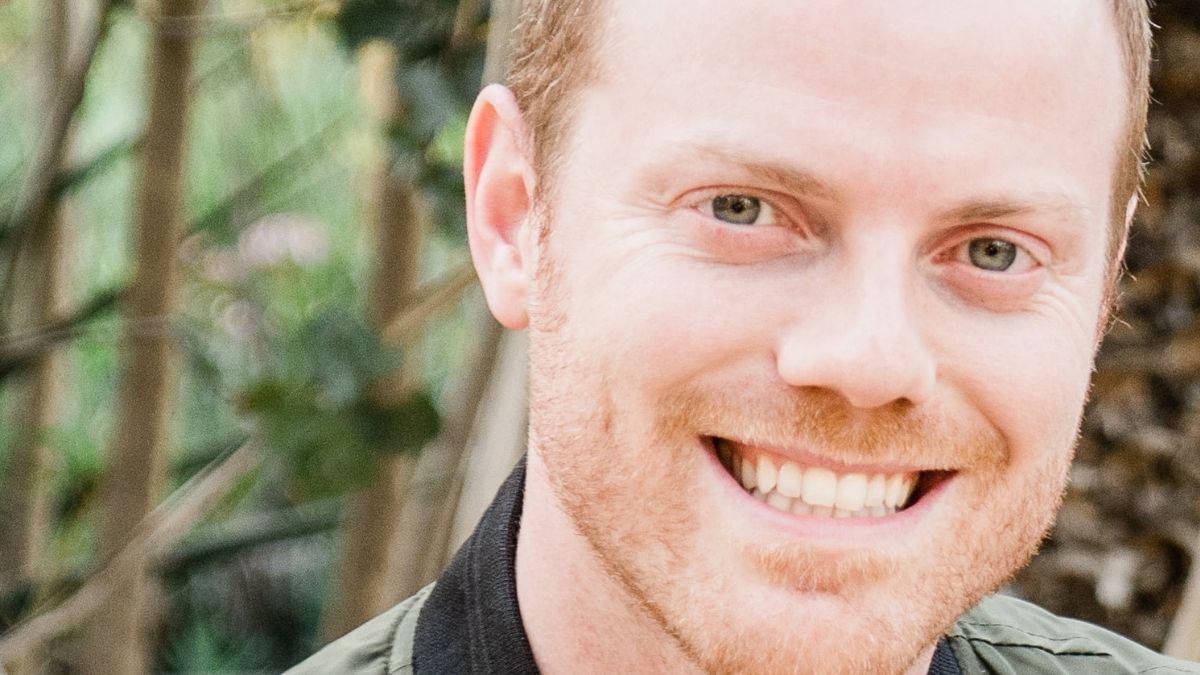The Founder's DNA
It is the question that sits at the heart of countless books, university courses, and late-night conversations: What is it that truly makes a great entrepreneur?
Is it a brilliant, once-in-a-generation idea? Is it access to a mountain of capital? Is it an MBA from a prestigious university? Is it simply being in the right place at the right time?
After more than 40 years in business—from my early days in corporate marketing to founding RedBalloon from my living room, to investing in dozens of businesses on Shark Tank, to co-founding Big Red Group—I have had a front-row seat to study this very question. I have seen founders with brilliant ideas fail and those with simple ideas build global empires. I've seen those with millions in funding crash and burn, and bootstrapped founders create immense, sustainable wealth.
And I have come to a firm conclusion. The success of a venture is rarely determined by the quality of the idea. It is almost always determined by the quality of the founder.
But what does that "quality" look like? This was the exact topic of a wonderfully deep and insightful conversation I had on my podcast with my dear friend, Christine. I have known Christine for many years, and this is not her first business. She is a seasoned, purpose-driven founder who is on a mission to shift leadership capabilities for her clients.
She is at a point in her journey where she is not just thinking about tactics, but about the very essence of entrepreneurial greatness. She asked me the big, foundational questions: What are the ideal strengths of a founder? How do you choose the right path for funding? What stops people from growing? And who is pushing you to be great?
Our conversation was a powerful exploration of the inner landscape of leadership.
Today, inspired by Christine's wisdom and curiosity, I want to give you my definitive guide to the DNA of a truly great entrepreneur.
The Myth of the "Ideal" Strengths - It's About Awareness, Not Perfection
Christine's question about the "ideal" strengths of an entrepreneur is one I hear often. We have this cultural image of a founder as a charismatic, visionary, risk-loving extrovert. The truth is, I have seen successful founders who are quiet introverts, cautious analysts, and systematic operators.
There is no "perfect" set of strengths. A great entrepreneur is not someone who is brilliant at everything. A great entrepreneur is someone who has a profound level of self-awareness. They know, with brutal honesty, what they are world-class at, what they are good enough at, and where they are truly terrible.
- Your Zone of Genius: This is the work that you are uniquely brilliant at and that gives you energy. For me, it's vision, brand, storytelling, and connecting with people.
- Your Zone of Competence: These are the tasks you can do, and do reasonably well, but they don't light you up.
- Your Zone of Incompetence: These are the things you actively dislike and are not good at. For me, this is detailed financial modelling and administrative process management.
A good founder tries to get better at their weaknesses. A great founder stops trying to fix their weaknesses and instead focuses on two things: spending as much time as possible in their zone of genius, and hiring or partnering with people whose zone of genius is their zone of incompetence.
They build a team that creates a collective genius. They don't have to be the best at everything; they have to be the best at assembling and leading a team of experts. Your first job as a founder is not to know all the answers, but to know yourself.
The Funding Question - A Reflection of Your Vision
Christine's question about funding, equity, and investment is not just a financial one; it's a philosophical one. The way you choose to fund your business is a direct reflection of the kind of business you want to build and the kind of life you want to live.
How do you know what is right for you? You have to answer these two questions first:
- What is your definition of success? Is it building a billion-dollar company and achieving a massive exit in 7-10 years? Or is it building a highly profitable, sustainable, multi-generational business that you control for the rest of your life? There is no right answer, but you must know your answer.
- What is the nature of your business model? Does your business require huge, upfront capital investment in R&D or technology before it can generate a single dollar of revenue? Or can it be profitable from the very first sale?
- If your goal is hyper-scale and a fast exit, and your business model requires immense upfront capital, then Venture Capital is a path you must consider. But you must walk it with your eyes open, knowing you are trading ownership and some control for speed and scale.
- If your goal is control, profitability, and long-term sustainability, then bootstrapping (funding the business from its own profits) should be your default path. This is the path I took with RedBalloon. It forces discipline, creativity, and a relentless focus on the customer. It allows you to be the master of your own destiny.
- The Middle Ground: As I've discussed recently, there is a powerful and growing middle ground of non-dilutive growth capital. This is for established, profitable businesses that need a cash injection for a specific growth opportunity (like a major inventory purchase or marketing campaign) without wanting to give up equity. This includes options like revenue-based financing.
The funding path you choose dictates the game you are playing. A great entrepreneur chooses their game with intention, rather than blindly following the dominant narrative.
The Growth Ceiling - What Really Stops People Growing Their Businesses?
This is the multi-million dollar question Christine and I explored. Why do some businesses hit a plateau and never break through, while others continue to scale? After observing hundreds of businesses, I believe it almost always comes down to the founder's inability or unwillingness to navigate three critical evolutions.
1. The Evolution from Doer to Leader:
In the beginning, your value is in what you do. You write the code, you make the sales, you pack the boxes. To scale, your value must shift to what you lead. You must hire people better than you at those tasks and then empower them to succeed. The business can no longer be limited by your personal capacity to do the work. The founder who cannot make this shift becomes the ultimate bottleneck.
2. The Evolution from Gut to Data:
Early on, you run the business on gut feel and intuition. You know all your customers by name. As you scale, you cannot personally know every customer or every transaction. You must learn to trust data as much as you trust your gut. You need to build dashboards and track key metrics. Data allows you to see the health of the business at a scale that your intuition can no longer manage.
3. The Evolution from Comfort to Courage:
Growth lives on the other side of your comfort zone. The decisions you have to make to scale a business are often bigger, scarier, and more complex. You might have to fire an early employee who was a great friend but is no longer the right fit for their role. You might have to make a huge financial investment in a new technology. You might have to say "no" to a good opportunity to protect your focus for a great one. The founder who shies away from these courageous, uncomfortable decisions is the founder who chooses stagnation.
The Force of Greatness - Who is Pushing You?
This final question from Christine is perhaps the most profound. A great entrepreneur is never a solo act. They are the product of the ecosystem they build around themselves. And a crucial part of that ecosystem is having people who challenge you, stretch you, and push you to be better than you thought you could be.
Comfort is the enemy of growth. You cannot achieve greatness if you surround yourself only with people who tell you what you want to hear. You need to be intentional about building a network of loving critics and supportive challengers.
- Your Board of Directors / Advisors: A great board doesn't just rubber-stamp your decisions. They interrogate your assumptions. They ask the hard questions. They hold you accountable to your own ambitions.
- Your Mentors: A mentor is someone who is a few steps ahead of you on the journey. They can see the roadblocks you can't and can offer perspective that saves you from costly mistakes.
- Your Peer Group: This is a group of other founders at a similar stage. They are the only other people in the world who truly understand the pressure you are under. This group provides a unique combination of empathy, accountability, and shared learning.
- Your Team: Hire people who are not afraid to respectfully disagree with you. A culture where the best idea wins, regardless of who it came from, is a culture that is built for greatness.
The common thread is that these people believe in your potential so much that they are not willing to let you settle for "good enough." They push you because they see the greatness in you.
An Inspiring Conversation for Any Leader
Our full conversation on the podcast was a rich and honest exploration of what it truly means to lead and build a business in the modern world. Christine's depth of thought and her commitment to her own growth as a leader were truly inspiring. We dove into each of these topics with the nuance and real-world experience that only two seasoned founders can share.
Greatness is a Choice, Not a Trait
What makes a great entrepreneur? It is not a fixed set of personality traits or a single brilliant idea. It is a series of conscious choices made every single day.
It is the choice to be self-aware. The choice to align your funding with your vision. The choice to evolve beyond your comfort zone. And the choice to surround yourself with people who will challenge you to become the leader your business needs you to be.
Greatness is not something you are born with. It is something you build. It is a mindset you cultivate. It is a standard you hold for yourself and for your business. It is, ultimately, a choice.
Frequently Asked Questions on What Makes a Great Entrepreneur?
1. What is the fundamental difference between a visionary with an idea and a truly great entrepreneur?
The fundamental difference is the shift from vision to disciplined execution. A visionary has the idea, but a great entrepreneur possesses the strategic discipline, resilience, and operational focus to transform that idea into a repeatable, profitable, and scalable system of value creation. They understand that success is built on clear processes, not just passion, and they are masters of aligning resources to a singular, unambiguous mission.
2. Why is 'strategic humility' an essential trait for a great entrepreneur?
'Strategic humility' is essential because it is the antidote to ego and the root of continuous learning. A great entrepreneur must be humble enough to accept that their initial vision may be flawed, to pivot when objective data demands it, and to "get out of the way" by delegating to professionals who possess greater expertise in specific domains. This humility allows them to prioritize the business's long-term health over their personal need to be right or in control.
3. How does a great entrepreneur use the 'Minimum Viable Product (MVP)' concept?
A great entrepreneur uses the MVP concept to achieve maximum learning with minimum capital and risk. They view the MVP not as a rushed final product, but as a disciplined testing tool. They focus relentlessly on proving the core value proposition solves a genuine, painful market problem and will not proceed to major investment until that core value has been unambiguously validated by real customer demand.
4. What role does emotional intelligence play in a great entrepreneur's ability to scale?
Emotional intelligence is crucial for scaling because it enables the entrepreneur to manage complexity, build strong relationships, and lead an inspired culture. It allows them to maintain a calm, rational perspective amidst chaos, attract and retain top talent through authentic connection, and build a high-trust environment where employees are aligned to the company's purpose and feel safe to report honest market feedback.
5. As an investor, what are the two non-negotiable financial metrics you look for that prove a great entrepreneur's success potential?
As an investor, I look for two non-negotiable metrics: 1. Profitable Cost of Customer Acquisition (CoCA): A clear, low, and repeatable cost to gain a new customer. 2. Strong Customer Lifetime Value (CLV): Evidence that the business delivers consistent, long-term value from that customer. These metrics, when healthy, prove the business model is scalable, repeatable, and financially sound, demonstrating true entrepreneurial success.






